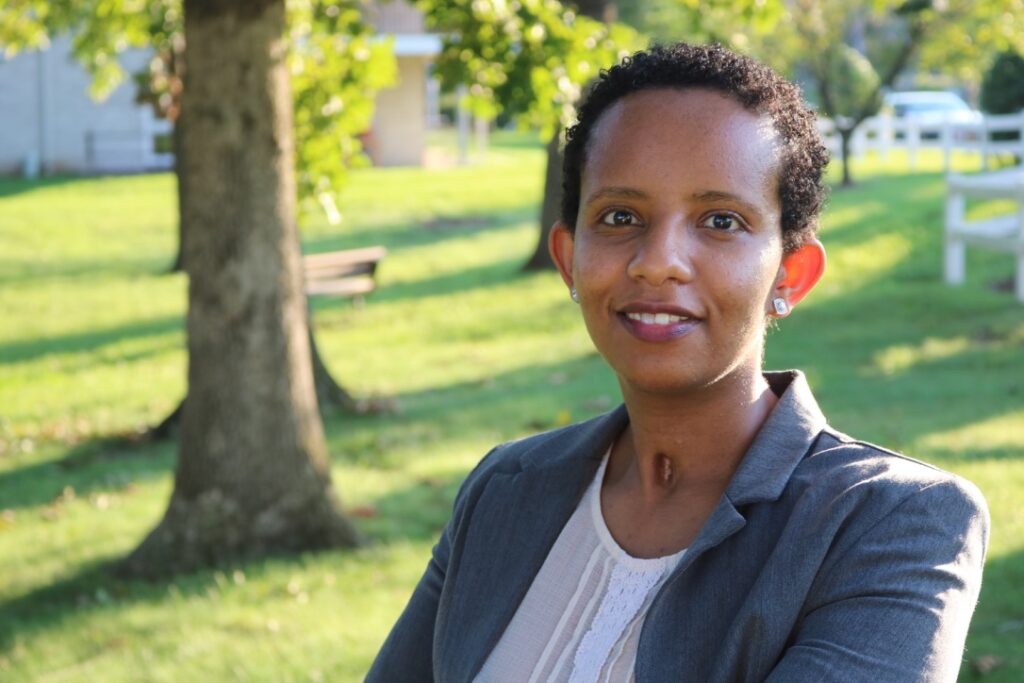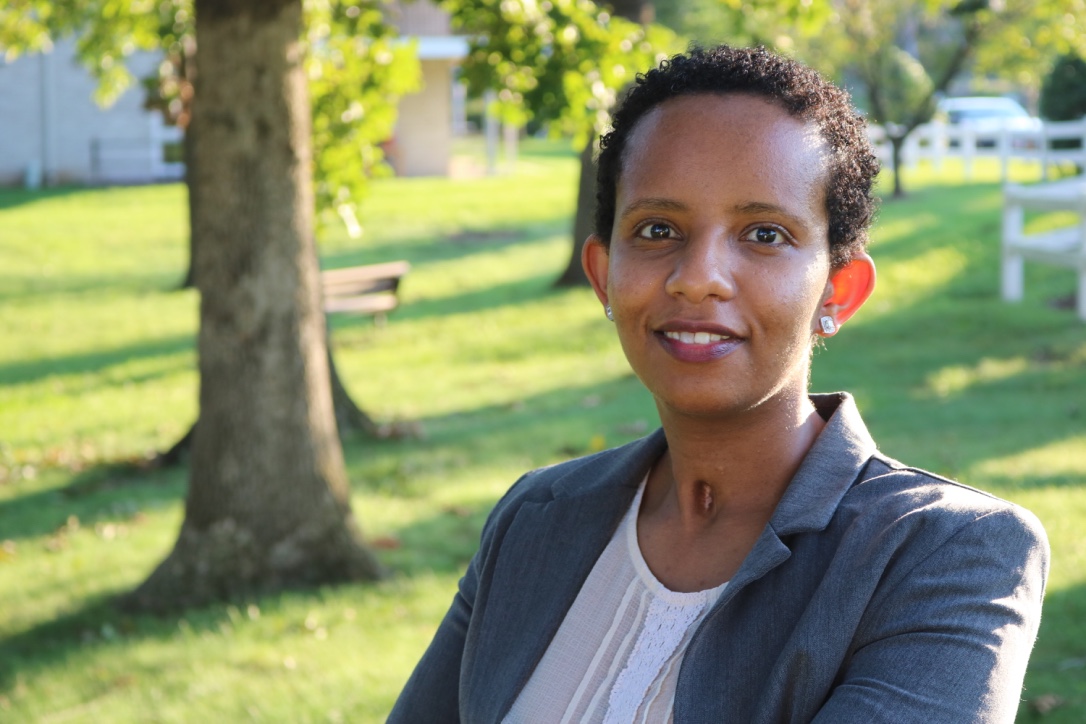 Guest Blog by Laka Mitiku Negassa
Guest Blog by Laka Mitiku Negassa
As a Black, immigrant woman with an acquired disability, I celebrate monumental events such as Black History Month and the signing of the Americans with Disabilities Act fervently. These civil rights laws have allowed me to live fully while contributing to society in pursuit of the American dream. However, as a traumatic brain injury survivor and someone who has experienced inequities in the U.S. healthcare system, these celebrations are also a time to reflect on civil rights laws and different health policies that govern the country. I take the opportunity to think about ways I can advocate and work with others to establish and strengthen these laws and policies. In line with the 2022 Black History Month theme, “Black Health and Wellness,” I am sharing my experiences to highlight problems in the U.S. healthcare system.
Being a traumatic brain injury survivor who needed extended and specialized care from multiple healthcare professionals, I know how vital it is to have access to continual, well-coordinated, and quality care. I also know what not having it means. I sustained the injury when I was hit by a snow plow as a pedestrian waiting to cross a street in Cleveland, Ohio, in 2013. The accident caused multiple bone fractures and major organ bleeding. I was in a coma for about three weeks, and I had to relearn everything, including how to speak, write, read, and walk. My brain had to re-wire to be able to take in information, process, and then generate relevant responses to questions.
In this guest blog, I focus on my language, comprehension, speech, and general cognitive recovery, and the related health policy issues I encountered.
It started in the emergency room of MetroHealth Hospital in Cleveland the night of the accident. I received five major surgeries. After being in a coma for three weeks, my eyes slowly started opening, and after a few days they started moving. I started recognizing people around me, such as the healthcare professionals and eventually my family. The only way people were able to tell whether or not I was recognizing them was because of the recognition smile I gave. This was the only way that people knew that I had some brain function. It took time for me to be able to actually utter words to speak as I had a tracheostomy (trach) tube to help me breathe. And when I did start speaking, I was told that it was slurry.
This is when my family and I started facing the inequities in the U.S. healthcare system. In the first eight months after the accident, I was transferred to five different healthcare facilities, including hospitals, rehabilitation facilities, and skilled nursing homes. At each new facility, I had to see different providers who had to re-evaluate me before they started working with me. For speech therapy, I started with my ABCs, to paragraph-reading, and reciting what I just read to assess my memory capacity. It also included working on my writing and math calculation to evaluate my comprehension level.
During the eight months of recovery, there was one speech therapist in particular who believed in me and my ability to fully recover. That gave me the confidence to push on. I had a bachelor of science degree in biology with a minor in psychology when the incident happened. She asked me what I would like to do with it and my future, while assuring me that anything was possible for me. That was the first time after the accident anyone asked me to think about my education and career and future. I knew then that more education was not just a possibility but a must if I wanted to work in public health and health policy.
Unfortunately, my care at the facility with the inspiring speech therapist was interrupted abruptly because of insurance issues. I had to be transferred to another skilled nursing home. While there, I did not get much speech therapy after my insurance concluded that I had reached the ceiling in terms of speech and cognitive ability. This was the last facility in Cleveland in which I received speech, physical, or occupational therapy. My insurance company decided that I had reached the end of my recovery journey and there was little left that medical intervention could do for me.
My parents decided to bring me to Maryland, where they lived. Then came a long interruption in care and therapy, while the state’s Medicaid agency verified that I was a resident of Maryland. During that time, my parents had to pay out of pocket to get me physical therapy. Gradually, county assistance helped, and then later, state Medicaid. I was then referred to the National Rehabilitation Hospital in Washington, DC, for physical, occupational and speech therapies.
At the National Rehabilitation Hospital, the social worker who was providing me neuropsychological care re-ignited my desire to further my education. During my recovery journey, I developed a mission to prevent others from experiencing what happened to me in terms of interrupted and uncoordinated health care.
But enrolling in a master’s program in health policy meant that I had to take the GRE. I wasn’t aware of the kind of accommodations people like me could get on those tests. The social worker told me about a neuropsychological exam that evaluates a person’s reading, language, attention, learning, processing speed, reasoning, remembering, problem-solving, mood, and personality. The results of the neuropsych exam demonstrated my need for double time on exams. Using that letter, I was able to take the GRE with accommodations I needed to level the playing field, and then was accepted to George Washington University’s Milken Institute School of Public Health. I studied health policy and got my MPH degree in December 2020.
I am now employed at the National Minority Quality Forum as a Microsoft Health Policy Fellow, working under the direct supervision of the Vice President of Policy and Practices and Director of the Institute for Equity in Health Policy and Practice. My work here is allowing me to open my eyes to systemic and policy problems that especially minority communities continue to encounter. This is also enabling me to think outside the box to find ways and means to break through these policy problems while collaborating and working closely with others.
As a Black immigrant family with a foreign first language, my family and I have encountered implicit biases in different healthcare facilities. The biases were centered around assumptions that we were not educated or informed. Some healthcare providers rarely took the time to explain my care unless we pressed for it.
For me personally, in this new journey of living as a TBI survivor with a speech disability who happens to have an accent, which was magnified by the TBI, I can recall a number of times where I experienced discrimination. The discrimination revolved around people assuming my understanding of a subject matter or my comprehension level are below average because I am a Black woman with a speech disability. And the look of disbelief or shock on people’s faces when they find out I have a master’s degree tells me that we need to continue to work so everyone will treat each other with respect and dignity without making pre-judgments about a person based on their skin color or speech disability.
As a Black, first-generation immigrant woman with an acquired disability, it is events and recognitions such as Black History Month and the signing of the American with Disabilities Act that make it possible for me to dream and also work hard to make a difference in health policy and disability policy. Everyone in this country, regardless of skin color, income, ethnicity and disability status, should be able to live well, cultivating good health and wellness to realize their full potential.

